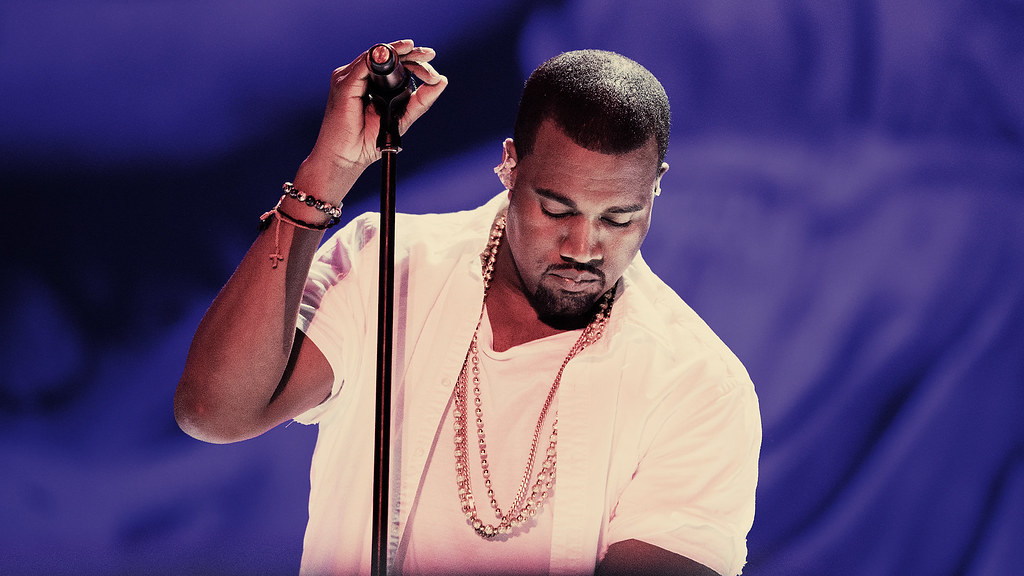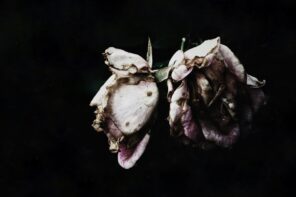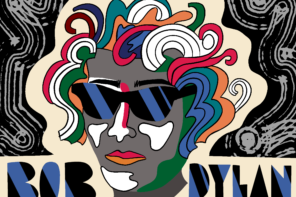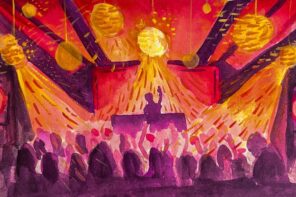As Ye entangles himself in a downward spiral of controversies and conspiracies, his anti-hero persona exposes itself clearer than ever.
A simply but elegantly dressed man runs exasperatedly on a dark, misty forest road. The stark light from the sky, a nebulous fusion of blue, orange, and red, fades away against the darkness of the nearby trees. In the background, Mozart’s “Lacrimosa,” from the posthumous Requiem compositions, harrowingly increases in volume.
This is the beginning of Runaway, the musical short film directed by Ye (f.k.a. Kanye West) to promote his fifth album, My Beautiful Dark Twisted Fantasy. It is no coincidence that the film begins with such a dark tone. Ye recorded the album following the infamous 2009 VMA Awards incident with Taylor Swift, for which he received very harsh comments from the media and public alike. Two years before, his mother passed away and, in 2008, he and his then-fiancée broke up. After this series of events, he released 808s & Heartbreak, a cold but emotionally packed album. However, reception to the album was polarized, as it received critical acclaim and support from young listeners, becoming a major influence for contemporary and future artists like Kid Cudi, Drake, and Frank Ocean, but was widely ridiculed by the media and both older rap fans and artists for its heavy use of autotune.
Unquestionably, this was the most difficult moment in Ye’s personal life since his rise to stardom. His career was in danger, and he had to prove himself. So, he worked restlessly on a new album, one with a maximalist and monumental, yet elegant and raw sound, in which he would reflect on his rights and wrongs, his flawed human condition, and the beauty of it all.
It worked. My Beautiful Dark Twisted Fantasy is viewed as his magnum opus and one of the best albums in the rap genre. Following its release, Ye continued to release platinum-certified albums, including a collaboration with fellow rap star Jay-Z. But this was only the calm before the storm. Ye would continue to get involved in innumerable controversies and personal conflicts. His latest ones include antisemitic death threat tweets, comments on his “love” for Hitler on conspiracy theorist Alex Jones’ InfoWars far-right platform, promotion of the “White Lives Matter” slogan with Trumper commentator Candace Owens, and worrying behavior around his ex-wife Kim Kardashian, his kids (who are now living with Kardashian), and her ex-boyfriend Pete Davidson.
All of this has led him to cut ties with major brands, like Adidas, with which he had a contract for his Yeezy shoes and apparel collaboration, in addition to receiving unprecedented public backlash – even for his standards. He has also ceased contact with his formerly close friend and artistic associate Kid Cudi, has a distanced relationship with his mentor Jay-Z and, of course, has cut all ties with Kardashian and Davidson.
If in 2009 he feared the end of his artistic career, in 2022 it is nearer than ever.
This is not all that new. Ye has been controversial since the very beginning. If in 2009 he feared the end of his artistic career, in 2022 it is nearer than ever. His determined, over-confident, impulsive, and megalomaniac behavior may have been crucial to his success and rise to fame, but his lack of self-control and moderation are also what could lead it to its demise. Ye is aware of his vulnerable situation and has insinuated that if he “ever [disappears], we’d know why” – hinting that the “powers that be” want to silence him. Whether he means this is unclear, but it is not the first time that Ye has spoken in such a fatalistic tone.
Behind his original production and sampling approaches, his unfiltered and tongue-in-cheek lyrics, and his sentimental, abrasive, and obscene subject matter, hides a constant reflection on his future life and self and, most notably, on his ending – whether artistic or personal. His entire discography is filled with these dirges, some more discreet or haunting than others, some hidden under metaphors, insinuations, or celebratory instrumentals. Requiems for a past life, past friendships, past girlfriends, past hopes, past dreams, and past selves. But also, self-aware of his flaws and destructive habits, future eulogies for his present life, his present self, and his well-being.
He first distantly approached these themes in “Through the Wire,” his debut single, and in “Roses,” discussing the near-death incidents that he and his grandmother experienced. However, it is in his third album Graduation, where he reflects on the flashy but vacuous nature of success and fame, that Ye discusses his dangerous, impulsive inclinations and his superficial relationship with his Christian faith in “Can’t Tell Me Nothing” – an imposing, glorious, but ominous anti-braggadocious song, in which he chants:
I had a dream I could buy my way to heaven
When I awoke, I spent that on a necklace
I told God I’d be back in a second
Man, it’s so hard not to act reckless…
I feel the pressure, under more scrutiny
And what [do] I do? Act more stupidly
Later simply concluding:
Let up the suicide doors
This is my life, homie, you decide yours
This sense of dissatisfaction, artificiality, and desperation is amplified in the closure of 808s & Heartbreak‘s “Pinocchio Story,” an improvisation live track he made in a concert in Singapore, where he presents himself as a powerless man destined to live a life full of lies who feels hopeless and aimless without his recently deceased mother. The crowd, in turn, shows little interest in his confessions, occasionally cheering to what he says but mostly nonchalantly talking over his confessional, sentimental words, as he sporadically utters:
The only one [who] was behind me
I can’t find her no more, I can’t call her no more…
And the day I moved to L.A., maybe that was all my fault
All my fault to be a real boy, chasin’ the American dream
Chasin’ everything we seen up on the TV screen
And when, uh, the Benz was left
And the clothes was left, and the hoes was left…
You spend the dough to death
In My Beautiful Dark Twisted Fantasy’s “Hell of a Life,” in which he examines his absurd, reckless relationship with love, fame, and success, Ye clairvoyantly sings:
I think I fell in love with a pornstar
And got married in the bathroom
Honeymoon on the dance floor
And got divorced by the end of the night
That’s one hell of a life
Followed by a series of harmonic but harsh hums and moans, orgastic and grandiose at first, only to sound more and more exhausted until they suddenly decompose into the song’s kickdrums.
More examples could be given, mostly from his 2018 album, ye, in which he delves into his mental health problems, romantic and personal conflicts, fears, and past problematic behavior. But what is clear is that, from the very start, Ye may have known that he could be famous and successful, but also that he was too fragile, too rash, too tactless, and too reckless to make it all – his family, his success, his career – go away. Years later, Ye is suffering from mental health issues that he cannot control, and he is making egregious and troubling comments all over the media.
Of course, Ye is no victim. Ye’s promotion of dangerous and racist thoughts is his mistake only, regardless of his mental health struggles. But TV anchors like Piers Morgan and CNN’s Chris Cuomo, or gossip media like the podcast Drink Champs, exploiting the image of a visibly unhinged person who is clearly affected by mental health issues, just to get more views and to reaffirm their disingenuous agenda, while giving voice to antisemitic and racist ideas, is appalling. While Instagram and Twitter decided to remove Ye’s account, limiting the propagation of his problematic statements, others are taking this opportunity to invite him onto their platform and to disseminate them even more. While this is an egregious example of the media’s inhumanity, this is certainly not the first time that celebrities, ideas, and events are commodified, distorted, and corrupted in such harmful ways.
While Instagram and Twitter decided to remove Ye’s account, limiting the propagation of his problematic statements, others are taking this opportunity to invite him onto their platform and to disseminate them even more.
As we are witnessing the downfall of Ye, I cannot help but look at the old Kanye. Yes, the one who may have tactlessly (but understandably) said “George Bush doesn’t care about Black people” during a benefit concert for 2005’s Hurricane Katrina relief, but also the one who came on MTV to criticize the prevalence of homophobia in 2000s rap music. The one who rapped against consumerism, college debt, “Black-on-Black” crime, or racism. Or, simply, the one who was neither a Trumper nor an antisemitic racist.
His decision to change his name to the mononym Ye is particularly striking now, in the midst of all this controversy. Ye claims that he wanted to stop being “the only one” (as Kanye means in some African languages) to a more inclusive and broader ideal – “you” and, ultimately, “us.” Ironically, as Ye erased his Kanye persona to find peace and self-growth, he has immersed himself in more condemnable and controversial behavior.
In this sense, Ye shares uncanny similarities with tragic (anti-)heroes. As influential avant-garde filmmaker Alejandro Jodorowsky analyzed after giving him a tarot card reading, Ye may be a man with enormous ambition and capacities, but also one who is destined to be The Fool. His entire life, personality, and shortcomings seemingly exposed and pre-established by greater forces. His hubris, unquestionably his tragic flaw, too large to even stop himself when he has his premonitory recognitions. Yet, he is devoutly followed by his supporters and team of yes-men, but not strong enough to save himself from nemesis – the Gods-ordained retribution to those who show arrogance against them. Unsurprising for someone who made a song called “I Am a God.”








